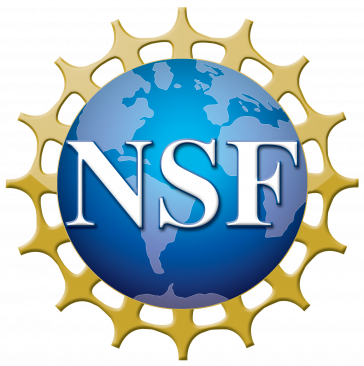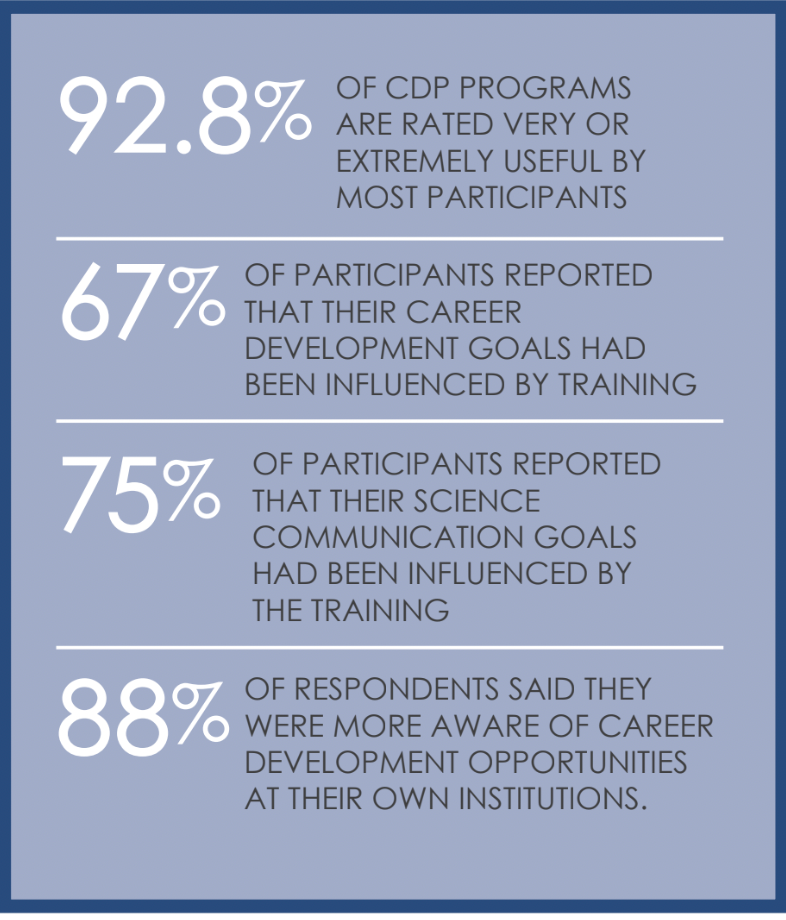Preliminary results of a study of our Career Development Program are coming in, and we’re excited to learn more about the impact of this program for early career STEM students and professionals. Funded by the NSF EPSCoR program, Metcalf partnered with the RI Consortium for Coastal Ecology, Assessment, Innovation & Modeling (C-AIM) to create the Career Development Program (CDP) in 2018 for Rhode Island students. The CDP is designed to teach communication and career skills to senior-level undergraduates, graduate students, and postdoctoral scholars. Taking place annually over a series of days, workshops are free of charge for students and include topics like effective mentorship, science communication fundamentals, leadership in STEM, and more. Between 2019 and 2022, Metcalf has hosted 65 different CDP workshops, including seven multi-day “intensive” programs, and collaborated with thirty institutions across Rhode Island and the nation to bring these trainings to fruition.
In order to study the CDP’s development and impact, we conducted a mix of evaluations, including quantitative and qualitative surveys of participants over the past four years. Our early analysis shows that workshops consistently met or exceeded expectations, and participants plan to recommend the training to others. We also found that it affected the science communication goals of 75% of participants, and there was always a reported increase in confidence with the targeted skills presented in the workshops after participation. While the data analysis is ongoing, we plan to publish these results in the coming year to assist other institutions in their efforts to support professional skillbuilding for STEM careers. Meanwhile, the results have been inspiring our planning process for the 2023 RI C-AIM CDP programming. We look forward to continuing our relationships with partner institutions and all those invested in equipping STEM students to better communicate and advance their work in science.

This work is supported in part by the RI Science and Technology Advisory Committee through RI Commerce as part of its award to the RI Consortium for Coastal Ecology Assessment, Innovation & Modeling (under RI NSF EPSCoR Cooperative Agreement #OIA-1655221). Any opinions, findings, and conclusions or recommendations expressed in this material are those of the author(s) and do not necessarily reflect the views of the National Science Foundation.

